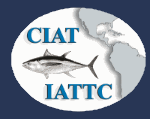- Home
- Research
- Projects
- Workshop to advance spatial stock assessments of bigeye tuna in the Pacific Ocean
- Objectives
- Bring together researchers to present and discuss the best practices for conducting fisheries stock assessment *
- Review all the topics covered in previous CAPAM workshops
- Use the information learned to improve the tropical tuna assessments and assessments of other species
- Background
- All stock assessments have uncertain assumptions that need to be addressed
- Stock assessment authors make different assumptions
- The CAPAM workshop series has covered aa broad range of topics related to fishery stock assessment
- A review of the knowledge learnt from the CAPAM workshops and other research will help improve stock assessments
- Relevance for management
- Knowledge gained from the workshop will be uses to improve the tropical tuna stock assessment and stock assessments for ther species
- Duration
- 12 months
- Workplan and status
- 2021 – invite keynote speakers
- Summer 2022 – prepare background material
- October 2022 – Conduct workshop
- November 2022 – Write workshop report
- May 2023 – report to SAC
- Deliverables
- Workshop report
- Updated date: 01 May 2023
- Progress summary for the reporting period
- The workshop was held in FAO headquarters in Rome, Italy on 24-Oct 28, 2022. An additional workshop specifically on tuna stock assessment good practices was held in Wellington, New Zealand, on 7-10 March, 2023.
- Challenges and key lessons learnt
- Funding was difficult to obtain
- FAO rules has made it difficult to publish presentation recordings online
- Insufficient staff time to complete reports
- The reports from both of these workshops are in preparation and a summary of the workshops will be presented at SAC 2023.
- Comments
- This initiative has been very successful, as has the whole CAPAM workshop series, however, lack of funding has limited its ability to make full use of the initiative.

